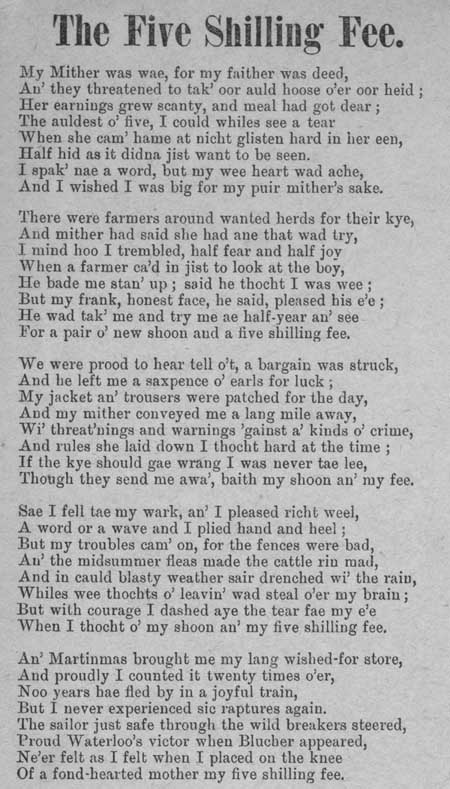Commentary
This ballad begins: 'My Mither was wae, for my faither was deed, / An' they threatened to tak' oor auld hoose o'er oor heid: / Her earnings grew scanty, and meal had got dear; / The auldest o' five, I could whiles see a tear'. 'Wae' is Scots for 'woeful', 'scanty' means 'meagre' and 'whiles' means 'sometimes'. This well-composed ballad contains many elements which mark it out as typical of the broadside folk song. Firstly, its focus is very much on hardship and poverty in a rural setting. The narrator, the oldest of five children, realises that he must go out to work if the family is to survive. A second theme, very popular in these ballads, is the boy's love for his mother. The final subject, typical at a time when many Scots were leaving for pastures new, is emigration. Early ballads were dramatic or humorous narrative songs derived from folk culture that predated printing. Originally perpetuated by word of mouth, many ballads survive because they were recorded on broadsides. Musical notation was rarely printed, as tunes were usually established favourites. The term 'ballad' eventually applied more broadly to any kind of topical or popular verse.
View Transcription | Download PDF Facsimile
|
 |
Probable period of publication:
1880-1900 shelfmark: RB.m.143(025)
 View larger image
View larger image
|


